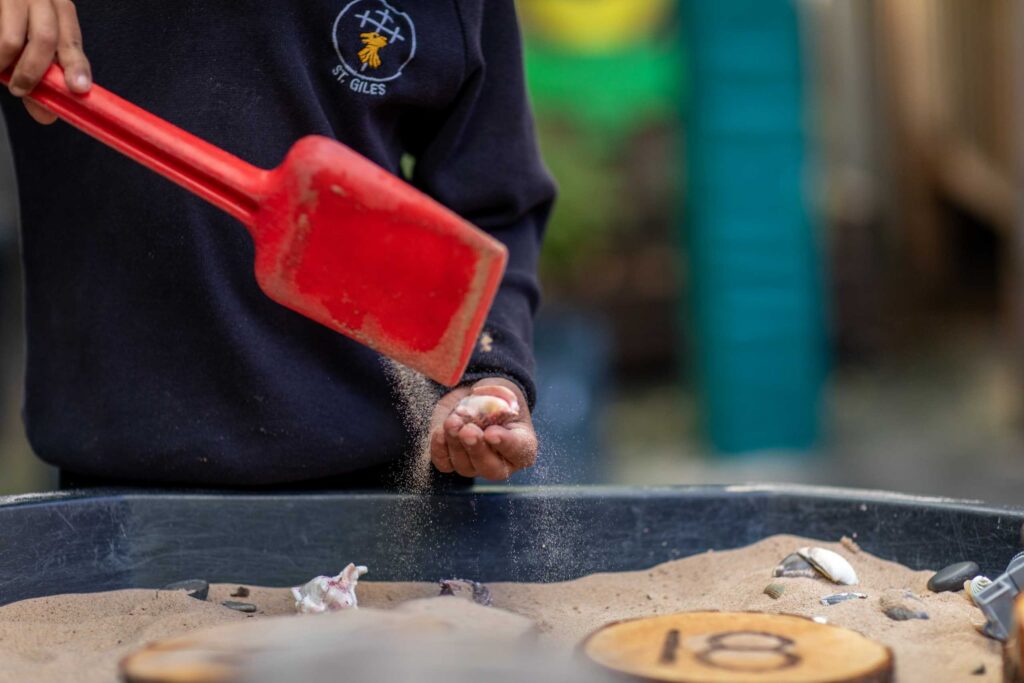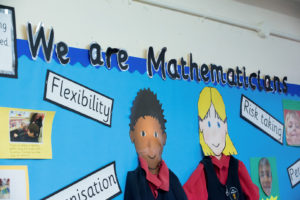MATHEMATICS AT ST. GILES'

At St. Giles’, we follow a Mastery approach to Maths. The school has worked as part of a Maths Teacher Hub in Surrey for a number of years to develop the teaching of Maths across the school. The Maths subject leader attends regular network meetings to ensure the school is aware of hot topics and that the teaching of Maths is up-to-date and of a high quality.
Why Teach for Mastery?
At St Giles’ we are not only passionate that every child achieves to the best of their potential, but further, that children master the mathematics they learn and are confident mathematicians as they progress. We want children to have:
- Deep and sustainable learning
- The ability to build on something that has already been sufficiently mastered
- The ability to reason about a concept and make connections
- Conceptual and procedural fluency
Teaching for Mastery fully supports these aims through:
- The belief that all pupils can achieve
- Keeping the class working together so that all can access and master mathematics
- Development of deep mathematical understanding
- Development of both factual/procedural and conceptual fluency
- Longer time on key topics, providing time to go deeper and embed learning

PROGRESS IN CALCULATION POLICY
If you would like to know more about the Teaching for Mastery please visit the NCTEM website:
https://www.ncetm.org.uk/resources/47230
At St Giles’ we have adopted this method of teaching Mathematics with a focus on:
Fluency – Reasoning – Problem Solving
Pupils are taught in daily, dedicated Maths lessons which work through a particular area of Maths in ‘small steps’. Pupils are encouraged to use concrete resources to support understanding, only progressing onto pictorial and abstract representations when they are ready.
Aspects of Mathematics teaching that can be seen in every classroom at St Giles’ include:
- Adults displaying positive attitudes towards Mathematics and a sense of excitement about the subject
- Children learning through active enquiry and experimenting by using concrete materials, representing their mathematical ideas through images and being provided with opportunities to practice what they have learnt
- Children learning to use multiple representations
- Mathematical skills being practised and applied across the curriculum
- Mathematically rich environments to support learning
- Communication, using precise mathematical language
- Independence being encouraged
- Opportunities for fluency and flexibility of thought in every lesson
- Adults using skilful questioning to reveal, probe and address misconceptions
- Children who grasp concepts rapidly being challenged through rich and sophisticated problems to provide breadth of study
- Scaffolding being provided for children when required
- Skilful assessment identifying children who are struggling to grasp concepts leading to guided groups and intervention sessions on the same day and in addition to the daily Mathematics lesson.
Useful websites with ideas for deepening understanding:
https://whiterosemaths.com/parent-resources

